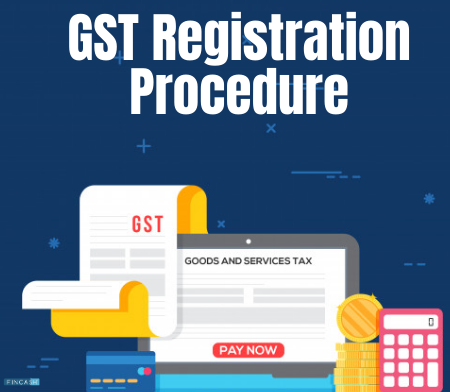Singapore GST Registration: What You Need to Know Before Using
Singapore GST Registration: What You Need to Know Before Using
Blog Article
Maximizing Tax Obligation Performance: Professional Tips on Navigating the GST Registration Labyrinth for Small Services
Browsing the complex landscape of Product and Services Tax (GST) registration can be a labyrinthine job for little companies intending to optimize their tax obligation performance. In this discussion, we will certainly check out skilled insights and workable recommendations that can empower little companies to browse the GST enrollment labyrinth efficiently and maximize their tax obligation effectiveness.
Qualification Standards
Qualification needs for Small Service GST Enrollment incorporate specific standards that services should meet to abide with tax obligation regulations. To certify for GST enrollment, an organization needs to have a yearly turn over going beyond the limit set by the tax authorities, which differs by country.

Documentation Requirements
The required paperwork commonly includes proof of service enrollment or identity, consolidation and address proofs of the service proprietor, pictures, financial institution account details, and proof of the principal location of company. Furthermore, organizations require to give details of their business activities, consisting of the items or services supplied.
Apart from the compulsory records, businesses might also be called for to send added details based upon their details circumstances. This can consist of records connected to collaborations, the consent of signatures, or any kind of various other pertinent contracts. Maintaining all needed paperwork organized and readily easily accessible can enhance the enrollment procedure and aid businesses follow the requirements efficiently - Singapore GST Registration. Failure to provide the needed documentation may lead to hold-ups and even rejection of the GST enrollment application. For that reason, precise attention to information and adherence to the paperwork guidelines are vital for an effective GST registration process for tiny organizations.
Timing Factors To Consider
Considering the important documentation requirements have actually been meticulously attended to, the following crucial aspect for little organizations starting the GST registration procedure is the strategic management of timing factors to consider. Timing plays a pivotal function in GST enrollment, impacting not only conformity but also monetary facets of the company. Tiny businesses need to meticulously prepare the timing of their GST enrollment to optimize benefits and reduce prospective threats.

Furthermore, businesses should align the timing of their GST registration with their operational readiness. Adequate preparation, such as updating accounting systems and training team, is important to effortlessly incorporate GST demands into everyday operations. By tactically handling timing factors to consider, local business can browse the GST registration process effectively and enhance their tax obligation performance.
Registration Process Tips
Successfully navigating the GST enrollment process needs small services to execute strategic and positive enrollment process ideas. This includes business registration documents, evidence of address, bank statements, and recognition proofs of the organization proprietors.
Additionally, comprehending the thresholds blog and demands for GST enrollment based on the details state or area where the company operates is crucial. Some states have different turn over limits that cause compulsory registration, so being educated regarding these limits can assist businesses plan in advance.
An additional useful idea is to think about seeking specialist support from accounting professionals or tax consultants who specialize in GST enrollment. Their expertise can enhance the process, minimize mistakes, and guarantee conformity with all guidelines.
Compliance Best Practices
Little companies need to focus on compliance to stay clear of penalties and keep a good standing with tax obligation authorities. Tiny service owners must on a regular basis assess government guidelines and look for specialist advice if needed to ensure they are satisfying all needs. By including these compliance best practices into their operations, little services read what he said can browse the intricacies of GST enrollment with self-confidence and effectiveness.
Final Thought
In verdict, small companies can navigate the GST registration labyrinth by ensuring they satisfy eligibility requirements, gather needed paperwork, take into consideration timing effects, follow registration process tips, and comply with compliance ideal methods. By taking full advantage of tax effectiveness with appropriate GST registration, companies can improve their financial management and operations.
Browsing the detailed landscape of Product and Solutions Tax (GST) enrollment can be a labyrinthine job for little services aiming to maximize their tax obligation performance.Qualification demands for Small Company GST Registration incorporate details requirements that services should meet to abide with tax obligation guidelines. The needed documentation generally includes evidence of organization enrollment or address, incorporation and identity proofs of the business proprietor, photographs, financial institution account information, and proof of the major location of business. In addition, companies require to provide information of their company tasks, including the solutions or items supplied.Efficiently navigating the GST registration process requires little companies to apply critical and proactive registration procedure tips.
Report this page